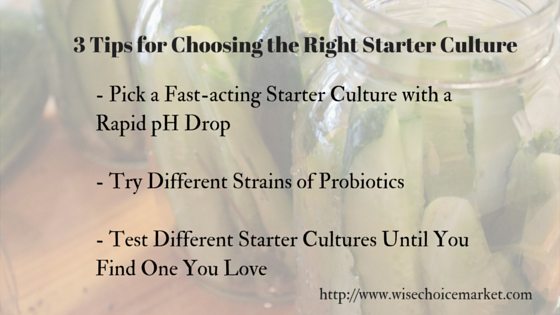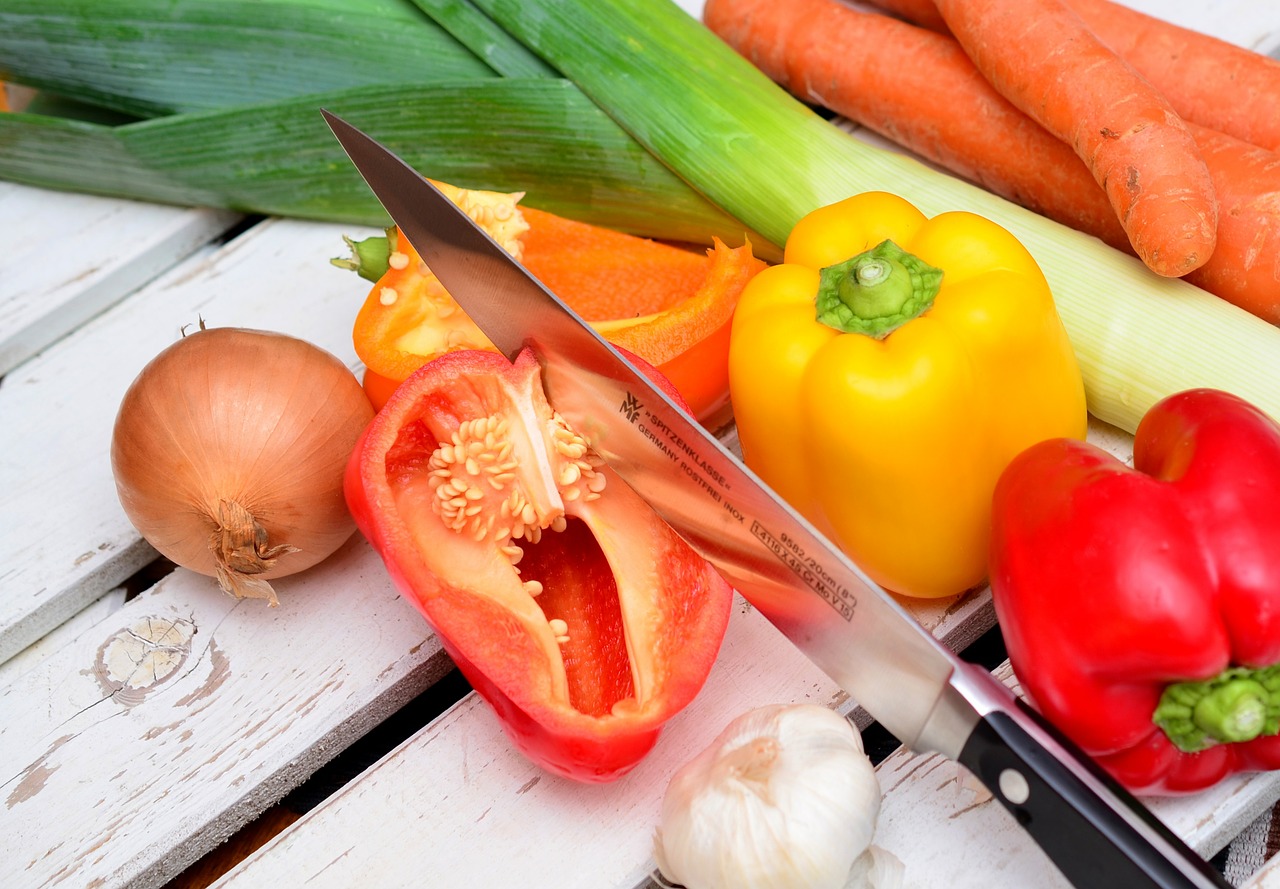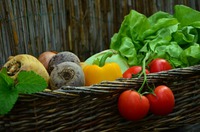- Home
- starter cultures
Blog Categories
Recent Posts
Cultured Vegetables: Choosing the Right Starter Culture
Posted by on

If you’re into doing things for yourself, I bet the idea of making your own cultured vegetables has crossed your mind at least once. Imagine getting a batch of delicious caraway and carrot kraut going in your kitchen, or surprising your mom with a jar of homemade fermented carrots with dill. Yum!
Grow your own veggies? This is a more nutritious and fun way to store your garden extras. Before you can start crafting your lacto-fermented veggies, you need to pick the right supplies, though.
I remember one of the first times I tried fermenting cabbage at home. I followed all the steps as best I could, but when I should have had sauerkraut, I wound up with a moldy disaster that smelled like an old gym sock. It was college. I had roommates. They weren’t pleased (to say the least!). The problem? I hadn’t washed my kraut well enough, packed it with enough salt, or even with enough water. In short, if it could be done wrong, I did it wrong.
To keep you from creating any stinky disasters, I’ve hunted around for some of the best tips on the net, talked to a few biologists, and done quite a bit of experimentation. The results are in, interesting, and (at least in my kitchen) delicious. This post, I promise you – you’ll find out how to choose the right starter culture for vegetables of all kinds. After all, no matter what you are making, the right beginning creates a better result.
Pick a Fast-acting Starter Culture with a Rapid pH Drop
Starter cultures for vegetables are easy to find, but ones that offer a rapid pH drop and deliver crisp, delicious vegetables aren’t. The reason a quick drop in pH is important is two-fold. You need a quick drop in pH for basic food safety – the slower the pH drops, the bigger the advantage that any bad microorganisms lurking in your fermentation batch have. The other factor is texture. There are some herbs and spices you can add to your cultured vegetables to help keep the crisp, but if you want to guarantee a crunchy, crispy, delicious result, your best bet is a fast-acting starter culture. It speeds up the overall fermentation process, and as a result, keeps veggies closer to a fresh texture than slow-acting home salt brines or sub-par starter cultures.
According to an article on Food Safety News 1, safe pH levels for finished fermented vegetables are 4.6 or lower. It can take an ordinary starter culture for vegetables days to weeks to get to that point. If you can find data on how fast the pH drops for the starter cultures you are evaluating, you’ll have a good idea of how consistently safe the final product will be. After all, the faster the pH drops, the less time the bad bugs have to grow. And in the end, isn’t that what we’re all aiming for? A safer probiotic-laden, lacto-fermented blend of yummy vegetables that we made at home. I know it’s what I want for my family!
Try Different Strains of Probiotics

If you want to get a fast-acting starter culture, you need to look at the microbes that live inside it. The most common strains you’ll find are from the lactobacilli family, hence the name lacto-fermentation. They do a great job, but sometimes adding an extra strain or two to the mix can speed things up.
There’s an added benefit to putting a few extra strains in the mix, of course – you’ll get the chance to down a few more probiotics. And trust me, your gut is already loving you for it.
Give Different Starter Cultures a Try
Are you consistently using the same starter culture, but want better results than you’re getting? Even if you’re making your own cultured vegetables in a salt brine (or, perhaps, especially if you are), you should consider trying other methods. Give a new starter culture brand a try to see if you like the end taste, texture, and health benefits better than your current method. It never hurts, and could definitely help. If nothing else, you’ll be exposed to a different set of probiotics. Go for it!
A Few Starter Cultures for Vegetables You’ll Love
Wise Choice Market customers are familiar with at least two of the cultures we love – Cultures for Health and Caldwell’s.
Cultures for Health is one of our favorite blends, and it produces a final fermented vegetable batch that is rich in flavor and offers a decent texture. Caldwell’s produces results that are similar to Cultures for Health, although slightly faster.

Conclusion
Despite myth to the contrary, starter cultures aren’t all created equal. The best cultured vegetables come from a starter culture with a quick pH drop and a robust mix of probiotic strains. The results of a great starter culture are safer, healthier, and offer a better texture than slower cultures and salt brining. Not everyone’s tastes are the same, however. Most commercially available starter cultures offer consistently reproducible results and a safe final product – assuming you ferment under safe conditions and keep an eye out for potential problems with your batch. Although we’ve found a new favorite to add to our list of starter cultures to play with in the kitchen, yours might be different. Give them all a try, and let us know what you think!
Image Credits: Pixabay and Canva
References:
1. http://www.foodsafetynews.com/2014/03/fermenting-veggies-at-home-follow-food-safety-abcs/#.VXA2dc9Viko
Information provided in this communication is not designed to and does not provide medical advice, professional diagnosis, opinion, treatment or services to you or to any other individual. This is general information for educational purposes only. The information provided is not a substitute for medical or professional care, and you should not use the information in place of a visit, call consultation or the advice of your physician or other healthcare provider. Wise Choice Marketing Inc is not liable or responsible for any advice, course of treatment, diagnosis or any other information, services or product you obtain through Wise Choice Marketing Inc.

7 of the Most Popular Cultured Foods from Europe
Europe is filled with rich stories which are often intertwined with the history and culture of food. Fermented foods and drinks have been part of western, northern, and eastern European life for centuries and possibly originated as a better way to store foods before refrigeration became available.Crème Fraiche In France, this “fresh cream” is made from unpasteurized cream that [...]

Why and How to Home Ferment Your Vegetables with a Starter Culture
When you decide to make fermented vegetables at home, the process can be intimidating at first. Getting the culture right, making sure you’ve added the right ingredients, heck – knowing what to add, choosing what to ferment... it can be a rough road.Fermented Vegetables, Probiotics, Health, and a Little History fore we get busy fermenting our veggies, let’s talk [...]



 Loading... Please wait...
Loading... Please wait...












